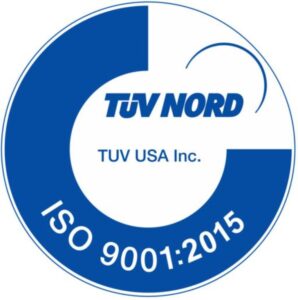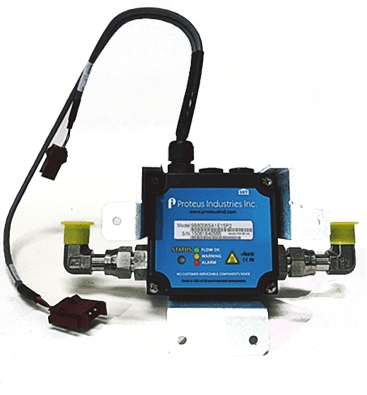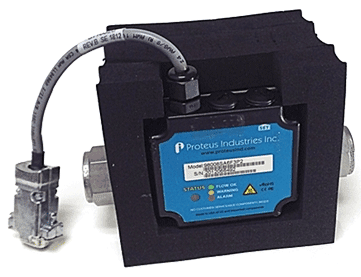Why Does Fluid Viscosity Matter When Selecting a Flow Meter
Flow meters are calibrated and/or specified at the viscosity of water at around 25 deg. C. This condition for water is considered a kinematic viscosity of 1 centistoke (cSt). In SI units this is 1 m^2/sec. Different flow meter types react differently to viscosity. Paddlewheel flow meters have pros and cons relative to some other types of meters.
In higher viscosity fluids, the paddlewheel calibrated for water in devices like the 800 Series Metering Flow Switches and 8000 Series Liquid Flow Meters will have a slower rotation relative to density. Consequently, the reading will be lower than the actual rate of flow. Conversely, if the viscosity is less than 1 cSt, the paddlewheel, as seen in the 8000XHT Series Flow Meters and the 8000EMR Series flow meters, will turn faster, indicating a higher than actual flow rate. Depending on the actual viscosity and the accuracy required for your application, this may or may not be an issue. If it is, it’s recommended that the flow meter be calibrated at the viscosity of the planned fluid. Functionally, paddlewheel flow meters can generally operate up to 100 cSt with a viscosity compensated calibration.
pv6000 series vortex flow meters and v7000 series vortex flow meters on the other hand are little affected up to 2 cSt. After that, there are curves and formulas that provide the compensated reading. The effect of viscosity is that the higher it goes, the lower the upper flow range of the Vortex meter becomes. For most purposes, after 5 cSt the vortex meter is not a good option.
If you are using a fluid other than water in your application, it is highly recommended that you discuss the application with an application engineer of the flow meter supplier.
Proteus Industries can perform custom calibrations to ensure your flow meter is matched to your fluids viscosity.







